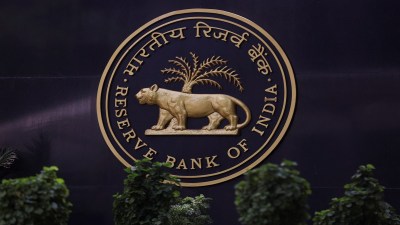By Mitali
The conversation around mental health in the workplace has taken on fresh urgency in 2024, with a series of tragic incidents highlighting the consequences of extreme work pressure. Recent deaths of young professionals due to stress-related reasons have sparked widespread debates on the need for better mental health support and awareness. Among these, cases involving staffers from EY in India and HDFC Bank have been notable, drawing attention to the critical state of mental health in high-pressure sectors like finance, consulting and technology.
Globally, too, similar tragedies have occurred. In Japan, the phenomenon of karoshi—death from overwork—remains a major issue, with cases still emerging despite regulatory efforts to limit excessive hours. In the US, a junior investment banker at a major firm in New York died after reportedly working multiple 100-hour weeks. This tragic incident has reignited debates on the “work hard” culture in high-paying sectors such as finance, where long hours are often seen as a badge of honour.
“The topic of workplace mental health has gained prominence in recent years and this has been advanced by the new generation joining the workforce. There is a lot more emphasis on mental well-being, taking precedence over conventional must-haves such as a good salary and so on. Organisations are starting to recognise that a culture that encourages well-being is not just an obligation but also essential for high-performing teams and business longevity. In order to create substantial impact, organisations need to have a strategic long-term approach to integrate well-being into the very fabric of the workplace,” said Abha Dandekar, founder of Elephant in the Room Consulting, a Mumbai-based firm offering mental health solutions for organisations.
What corporates are doing
Large corporations such as Microsoft and Unilever have introduced employee assistance programmes that offer confidential mental health counselling, training for managers, and resources for stress management. In India, Tata Consultancy Services (TCS) launched the ‘Mind Matters’ initiative in 2024, providing round-the-clock access to mental health professionals for its staff. However, a majority of workplaces in India still lack formal support systems.
“IDA Ireland has policies aimed at supporting mental well-being, including an employee assistance programme. This confidential, free service is available 24/7 to employees and their immediate families, offering unlimited access to support for personal or work-related concerns. The programme also includes up to six face-to-face counselling sessions per issue,” said Tanaz Buhariwalla, director, Indian subcontinent, IDA Ireland.
Buhariwalla highlighted that training is provided to all managers on how to recognise and address mental health concerns. Quarterly check-ins include discussions on mental health.
Nimisha Das, senior director, HR, at Kellanova South Asia, shared that her organisation is in partnership with Amaha, a mental health employee assistance organisation, to establish a comprehensive support ecosystem for employees. “We have established a structured programme that prioritises mental health and well-being within the organisation. This includes a system that allows employees to take time off for stress, burnout, and other mental health challenges,” Das said.
Kellanova recently launched the Happyfeet Initiative, a support system for expectant mothers, aimed at helping them navigate motherhood and sensitising managers to the needs of frontline saleswomen.
Shefali Rai, senior vice-president & global head, people & culture, at InMobi & Glance, noted that their employees have access to meditation rooms in the office, along with mindfulness apps like Calm. “Our Unwind programme encourages relaxation through creative activities like painting and dance, and employee-driven clubs foster interests in literature, cinema, sports, and wellness. For long-term employees, we offer a sabbatical policy, allowing them to take extended time off and return to work. Our sick leave policy also covers both physical and mental health breaks,” she added.
Rai said that the company gathers feedback through open conversations and anonymous inputs across multiple channels.
Governments, too, have a role to play. In India, discussions are underway to make mental health support mandatory in workplaces, especially in sectors with high stress levels like IT and finance. However, implementation remains inconsistent, and many companies are yet to adopt such measures.
Need for change
Addressing mental health in the workplace requires more than policies; it demands a cultural shift where mental well-being is seen as a priority rather than a luxury. This includes promoting open dialogue about mental health challenges and ensuring that employees feel comfortable discussing their struggles without stigma. Leaders and managers must play a crucial role in fostering this culture by modelling empathy, acknowledging their own challenges, and encouraging a balanced work-life approach.
Experts emphasised that the initiatives like wellness workshops, mental health days, and flexible work arrangements can be effective in reducing stress and preventing burnout. Additionally, offering digital tools such as meditation apps and access to mental health professionals can empower employees.
Dr Vikram Vora, medical director (Indian subcontinent) at International SOS, said: “Providing access to a designed-for-purpose well-being programme that includes creating awareness, de-stigmatisation, empowerment to identify mental health challenges, and providing support in the form of mental health professionals, counselling services, and employee assistance programmes is essential.”
Dr Rituparna Ghosh, consultant senior clinical psychologist at Apollo Hospitals Navi Mumbai, said: “Co-workers can provide support by actively listening without judgment, offering help when needed, and fostering an inclusive, empathetic environment. Simply checking in with someone regularly can make a significant difference.” She emphasised that employees should set clear boundaries, manage their workload, take regular breaks, and prioritise self-care practices.
Dr Shaunak Ajinkya, consultant psychiatrist at Kokilaben Dhirubhai Ambani Hospital, said, “If possible, colleagues should offer help with workload, meeting deadlines or completing tasks one may struggle with. This can relieve immediate stress. Suggesting a walk or a coffee break together can be a gentle way to offer support.”









